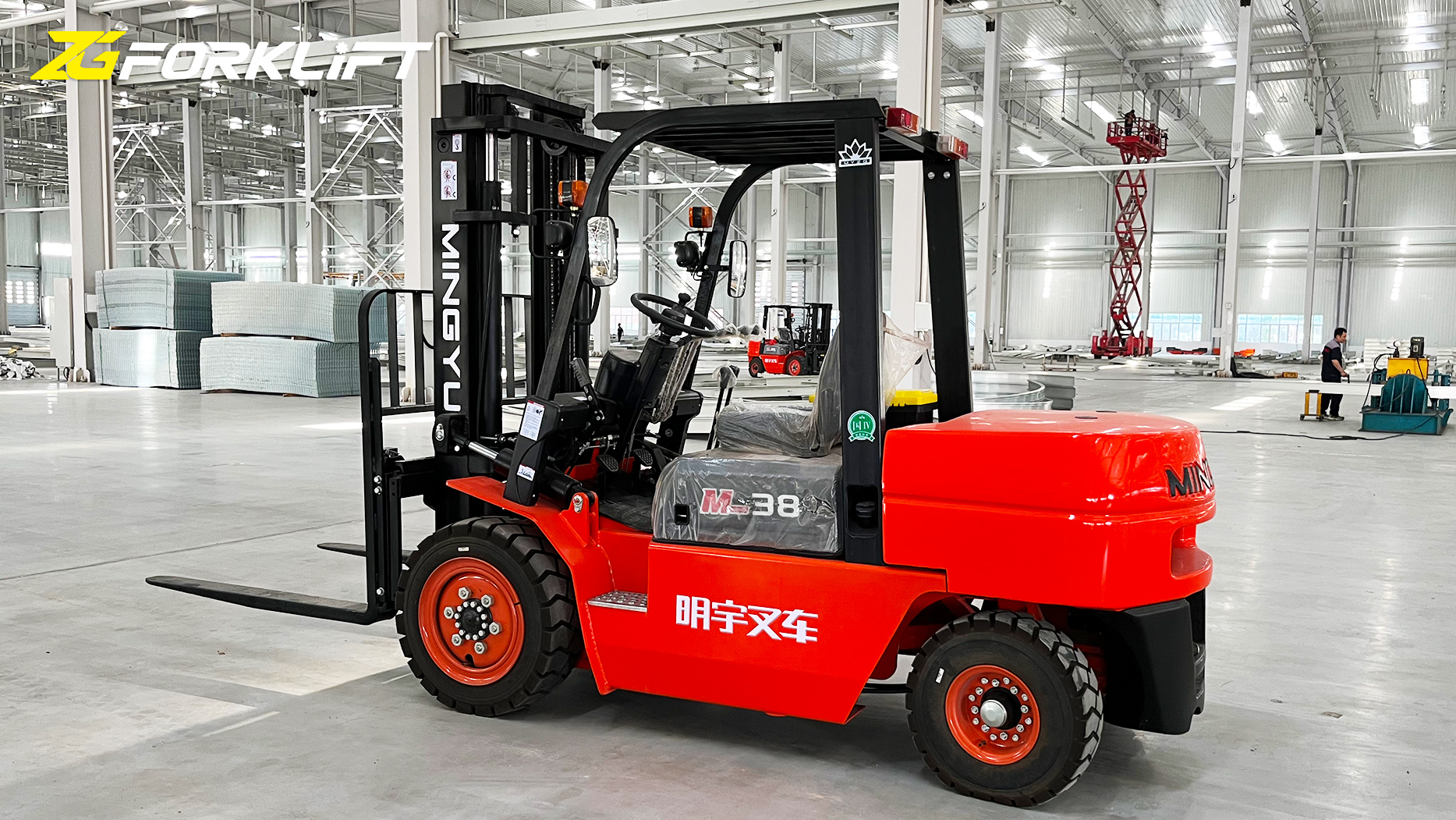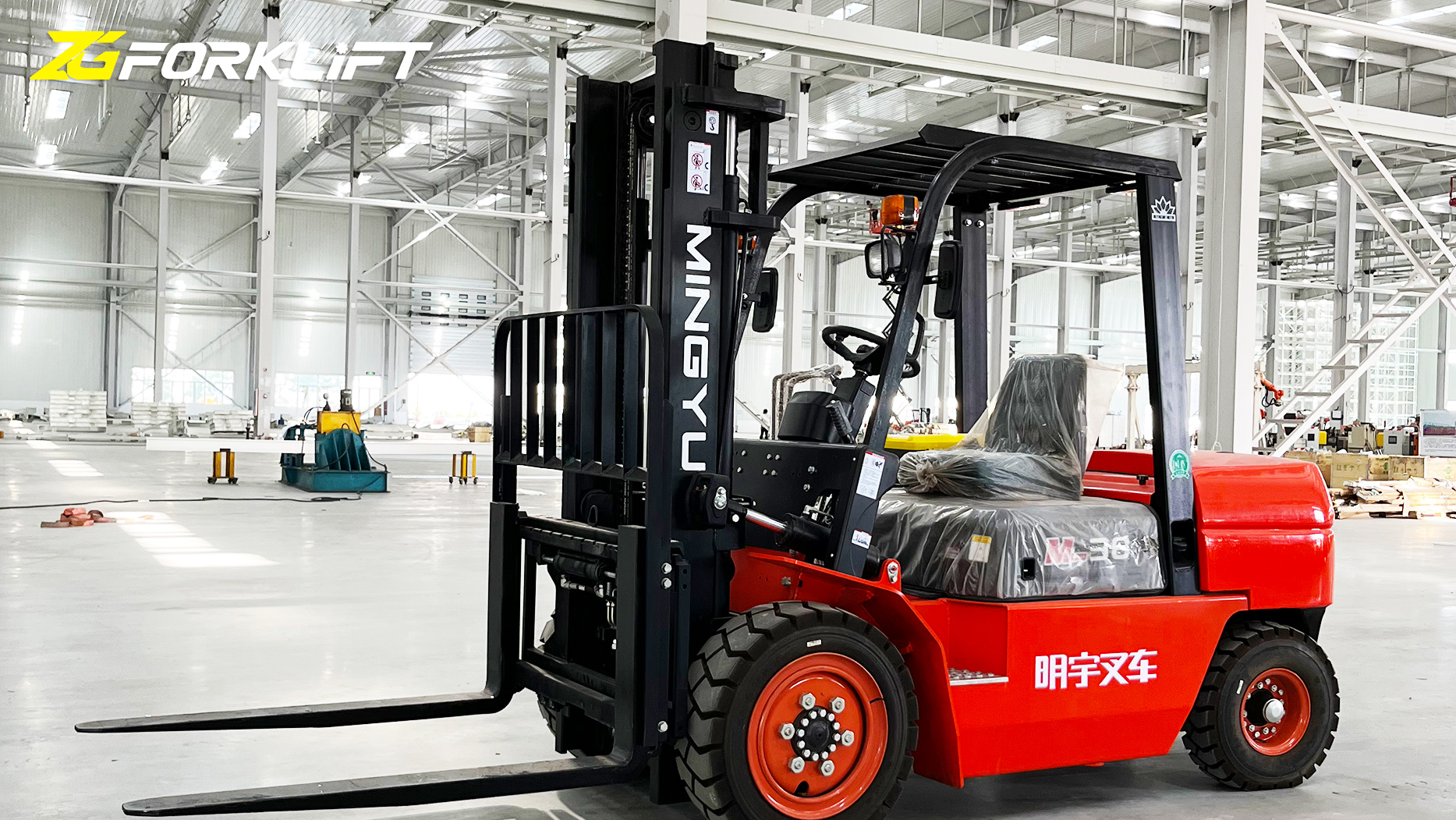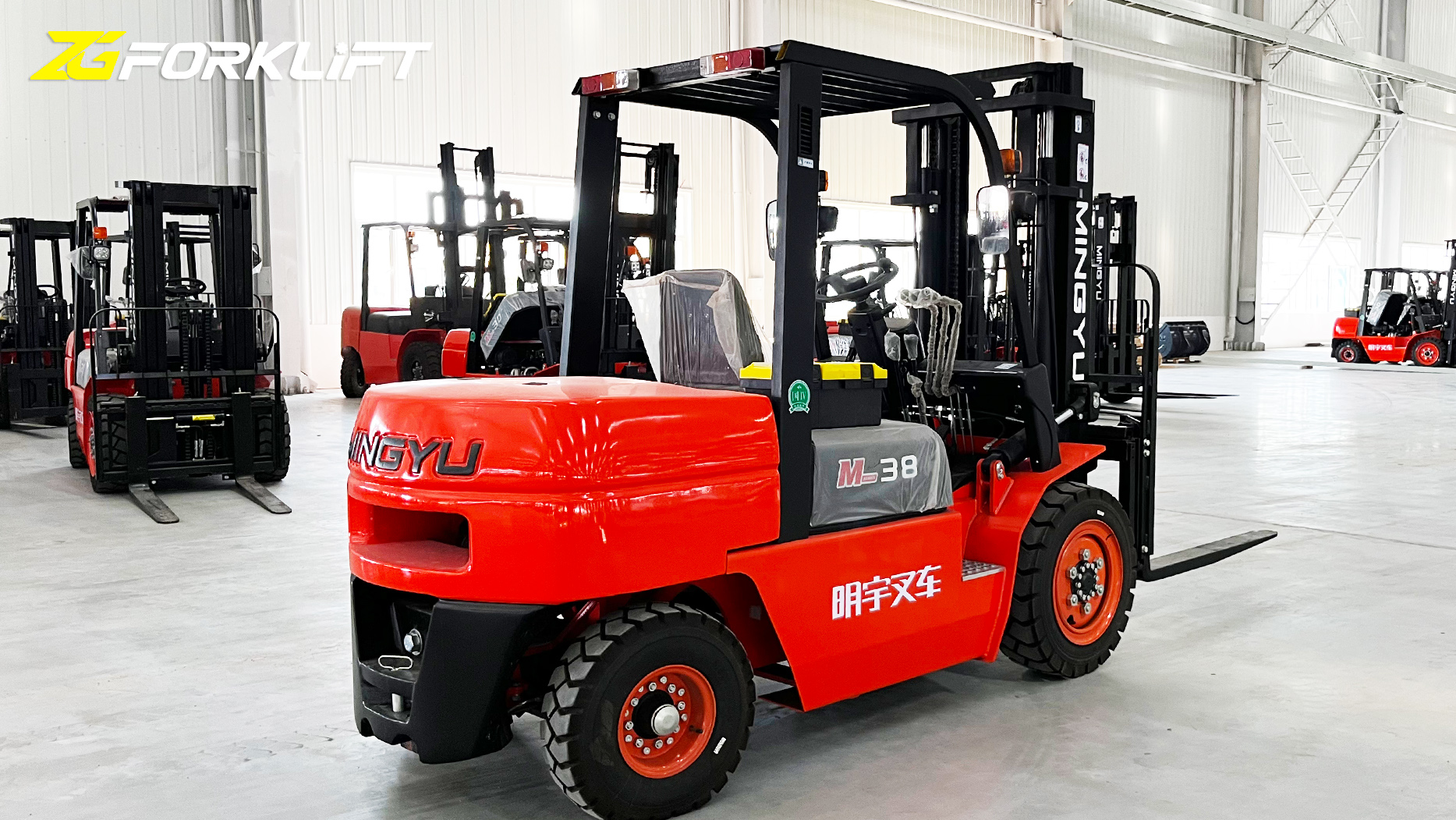Diesel Forklifts: A Powerful Force in Material Handling
Introduction
Diesel forklifts are a mainstay in various industries, renowned for their power, durability, and versatility. They are workhorses designed to handle heavy loads in demanding environments, from construction sites and ports to warehouses and manufacturing facilities. This article delves into the intricacies of diesel forklifts, exploring their key features, operational principles, advantages, disadvantages, and critical safety considerations.
Understanding the Basics
At their core, diesel forklifts are industrial vehicles equipped with a diesel engine as their primary power source. This engine drives the forklift's hydraulic system, enabling it to lift, lower, and transport heavy loads efficiently. Key components of a diesel forklift include:
Engine: The heart of the forklift, providing the necessary power for operation.
Transmission: Transmits power from the engine to the wheels.
Hydraulic System: Controls the movement of the forks, mast, and other attachments.
Mast: The vertical structure that raises and lowers the forks.
Forks: The horizontal prongs used to grip and carry loads.
Tires: Typically pneumatic tires for outdoor use and cushion tires for indoor applications.
Operational Principles
Diesel forklifts operate on a relatively simple principle:
Engine Ignition: The operator starts the diesel engine.
Power Transmission: The engine's power is transmitted through the transmission to the wheels and the hydraulic system.
Hydraulic Operation: The operator manipulates the controls to activate the hydraulic system, which in turn moves the forks, mast, and other components.
Load Handling: The operator positions the forks under the load, raises it to the desired height, and transports it to the designated location.
Advantages of Diesel Forklifts
Power and Torque: Diesel engines offer superior power and torque compared to gasoline or electric counterparts, making them ideal for handling heavy loads in challenging conditions.
Durability: Built to withstand rigorous use in demanding environments, diesel forklifts are known for their exceptional durability and longevity.
Fuel Efficiency: Modern diesel engines are more fuel-efficient than older models, reducing operating costs.
Versatility: Suitable for a wide range of applications, including outdoor operations, construction sites, and material handling in challenging terrain.
Availability of Fuel: Diesel fuel is readily available at most service stations, making refueling convenient.
Disadvantages of Diesel Forklifts
Emissions: Diesel engines produce emissions, including particulate matter and nitrogen oxides, which can have an adverse impact on air quality.
Noise: Diesel engines can be noisy, which may be a concern in noise-sensitive environments.
Maintenance: Diesel engines require regular maintenance, including oil changes, filter replacements, and other service tasks.
Indoor Use Limitations: Due to emissions and noise, diesel forklifts may not be suitable for indoor use in well-ventilated areas.
Environmental Concerns: Diesel emissions contribute to air pollution and greenhouse gas emissions.
Safety Considerations
Safety is paramount when operating diesel forklifts. Key safety considerations include:
Operator Training: Proper operator training is essential to ensure safe and efficient operation of diesel forklifts. Training should cover topics such as pre-operational checks, safe driving techniques, load stability, and emergency procedures.
Maintenance and Inspections: Regular maintenance and inspections are crucial to ensure the safe and reliable operation of diesel forklifts. This includes checking tire pressure, fluid levels, and the overall condition of the forklift.
Load Stability: Operators must ensure that loads are properly secured and balanced to prevent tipping accidents.
Work Area Safety: The work area should be free of obstructions and properly marked to prevent accidents.
Personal Protective Equipment (PPE): Operators should wear appropriate PPE, such as safety glasses, gloves, and steel-toed boots.
Fire Safety: Diesel fuel is flammable, so it is crucial to take appropriate precautions to prevent fires.
Technological Advancements
Technological advancements are continually improving the performance and efficiency of diesel forklifts:
Emission Control Systems: Modern diesel engines are equipped with advanced emission control systems, such as selective catalytic reduction (SCR) and diesel particulate filters (DPF), to reduce emissions.
Telematics: Telematics systems can track forklift usage, monitor performance, and provide valuable data for fleet management.
Ergonomics: Improved ergonomics enhance operator comfort and reduce fatigue, leading to increased productivity and safety.
Automation: Advancements in automation technology are enabling the development of autonomous forklifts, which can improve efficiency and safety in certain applications.
Future Trends
Alternative Fuels: The development of alternative fuels, such as biodiesel and renewable diesel, can reduce the environmental impact of diesel forklifts.
Hybrid and Electric Technologies: Hybrid and electric technologies are being explored to further improve fuel efficiency and reduce emissions.
Autonomous and Remote Operation: The increasing adoption of autonomous and remote operation technologies will revolutionize the way forklifts are operated.
Conclusion
Diesel forklifts remain a critical component of material handling operations in various industries. Their power, durability, and versatility make them indispensable for handling heavy loads in demanding environments. However, it is crucial to address the environmental and safety concerns associated with diesel forklifts. Technological advancements and a focus on sustainability will continue to shape the future of diesel forklift technology, driving further improvements in performance, efficiency, and environmental impact.
Post time:Jan.16.2025



